News
-
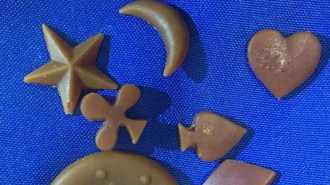 Chemistry
ChemistryChemists turned plastic waste into tiny bars of soap
Researchers developed a process to turn plastic waste into surfactants, the key ingredients in dozens of products, including soap.
-
 Health & Medicine
Health & MedicineWhat to know about the new RSV vaccine for pregnant people
Data on the FDA-approved Pfizer vaccine are promising. Questions about safety and how it might be used in conjunction with another new RSV shot remain.
-
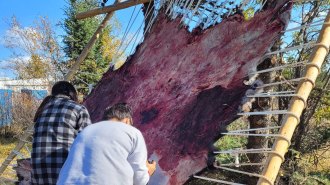 Psychology
PsychologyAn apology to Indigenous communities sparks a mental health rethink
The leading U.S. psychological association pledged to embrace Indigenous approaches to healing, which requires rethinking how to address mental health.
By Sujata Gupta -
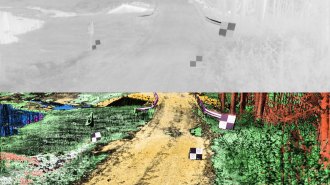 Artificial Intelligence
Artificial IntelligenceHow artificial intelligence sharpens blurry thermal vision images
A thermal imaging technique uses a special camera and AI to create clear images and accurately gauge distances of objects, even in pitch-blackness
-
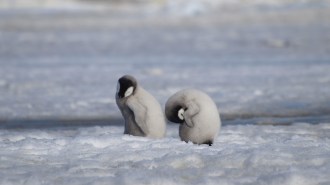 Climate
ClimateEmperor penguins lost thousands of chicks to melting ice last year
In 2022, groups of emperor penguins in western Antarctica lost almost all their chicks to receding sea ice, signaling the threat of climate change.
-
 Space
SpaceIndia’s successful moon landing follows recent failures by other countries
The Chandrayaan-3 mission delivered a lander and rover to the moon. Attempts by other countries this year show that getting there is still a challenge.
-
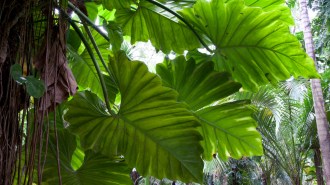 Climate
ClimateSome leaves in tropical forests may be getting too hot for photosynthesis
Climate change may be forcing some tropical leaves to stop photosynthesis and die. It’s still unclear what effect this will have on entire forests.
By Nikk Ogasa -
 Genetics
GeneticsThe Y chromosome’s genetic puzzle is finally complete
New analyses of the human Y chromosome reveal millions of new bases and different locations for the same gene in different people.
-
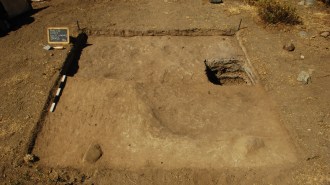 Archaeology
ArchaeologyPre-Inca people stomped salutes to their thunder god on a special dance floor
Excavation of a drumlike platform in the Andes turned up a structure seemingly designed to absorb shocks and emit resonant sounds when stomped upon.
By Bruce Bower -
 Health & Medicine
Health & MedicineHealth risks can persist at least 2 years after COVID-19, new data suggest
U.S. veterans who tested positive for COVID-19 in 2020 remain at higher risk for many long COVID conditions, from heart disease to gastrointestinal issues.
-
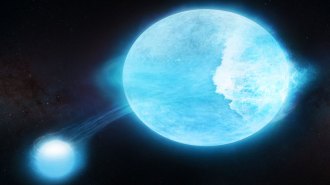 Astronomy
AstronomyThis extreme star might have huge tidal waves
Gravitational forces between two orbiting stars might be creating huge waves of plasma on one of the stars that break and crash to the surface.
By Liz Kruesi -
 Health & Medicine
Health & MedicineWhat should we expect from the coronavirus this fall?
The virus may be reaching a phase of baseline circulation, says epidemiologist Aubree Gordon. But it’s unclear what will happen in the next few months.